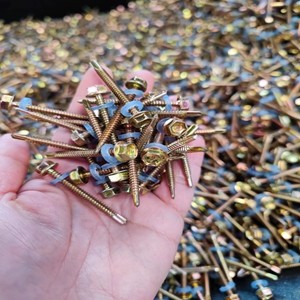leaf spring washer company
Understanding Leaf Spring Washers A Crucial Component for Industrial Applications
In the diverse world of mechanical engineering and manufacturing, the significance of small components cannot be overstated. Among these, the leaf spring washer stands out as a critical element used in various industrial applications. This article explores the function, benefits, and manufacturing processes of leaf spring washers, emphasizing their importance in maintaining the reliability and efficiency of machinery.
What Are Leaf Spring Washers?
Leaf spring washers, often referred to as spring washers, are conical or disc-shaped components designed to provide a flexible connection in bolted or fastened systems. Their unique shape allows them to exert a force, preventing loosening due to vibrations or thermal expansion in machinery. Typically made from high-carbon steel or stainless steel, these washers are engineered to endure harsh conditions and heavy workloads, making them ideal for applications in automotive, aerospace, and general manufacturing industries.
The Role of Leaf Spring Washers in Machinery
The primary role of leaf spring washers is to maintain the tension in a system. When a bolt or fastener is torqued down, the leaf spring washer compresses and creates a preload, which helps keep the components secure. This is particularly important in applications where vibrations are prevalent, as they can lead to loosening over time. By using leaf spring washers, manufacturers can ensure that connections remain tight and reduce the risk of mechanical failure.
Benefits of Leaf Spring Washers
The advantages of incorporating leaf spring washers into mechanical designs are numerous. Firstly, they offer enhanced durability, with high resistance to wear and fatigue. This durability translates into a longer lifespan for the components they support, reducing the need for frequent replacements and maintenance.
leaf spring washer company

Secondly, these washers improve the overall performance of machinery. By maintaining consistent tension and preventing loosening, they contribute to smoother operation and increased reliability. This is particularly crucial in applications where downtime can result in substantial financial losses.
Additionally, leaf spring washers are versatile and can be used in various environments, including high-temperature and corrosive settings. Their ability to adapt to different operational conditions makes them a valuable choice for engineers seeking reliable solutions.
Manufacturing Leaf Spring Washers
The production of leaf spring washers involves several critical steps to ensure their quality and performance. Typically, manufacturers start with high-grade raw materials, which are then subjected to processes like cold forming or heat treatment to achieve the desired mechanical properties. Precision machining is often used to create the specific dimensions required for each application, ensuring an optimal fit.
Quality control is also a vital part of the manufacturing process. Every batch of washers undergoes rigorous testing to check for durability, strength, and consistency. Companies rely on certifications and standards, such as ISO, to guarantee that their products meet industry requirements and customer expectations.
Conclusion
In conclusion, leaf spring washers may be small components, but they play a significant role in enhancing the functionality and safety of various mechanical systems. Their ability to withstand pressures and prevent loosening under dynamic conditions makes them indispensable in many industries. As technological advancements continue to evolve, the design and manufacturing of leaf spring washers will likely become even more sophisticated, further driving innovation in mechanical engineering and ensuring the longevity of critical machinery. Whether in an automotive assembly line or aerospace application, these washers are essential to achieving high performance and reliability.
-
Top Choices for Plasterboard FixingNewsDec.26,2024
-
The Versatility of Specialty WashersNewsDec.26,2024
-
Secure Your ProjectsNewsDec.26,2024
-
Essential Screws for Chipboard Flooring ProjectsNewsDec.26,2024
-
Choosing the Right Drywall ScrewsNewsDec.26,2024
-
Black Phosphate Screws for Superior PerformanceNewsDec.26,2024
-
The Versatile Choice of Nylon Flat Washers for Your NeedsNewsDec.18,2024










